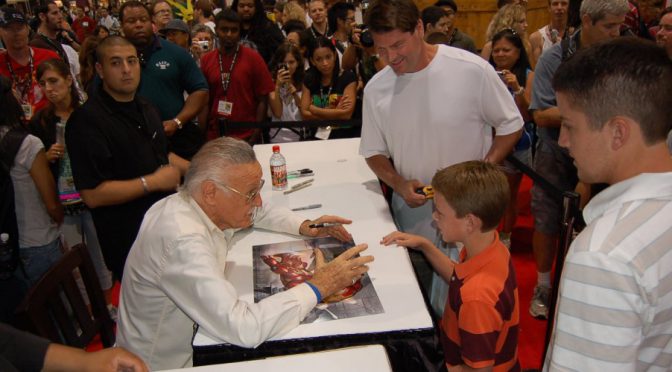Everywhere you look, people like to talk about the power of motivation. We all think about it at some point or another, we’ve seen plenty of self-help books try to sell us the secrets to it, and we’ve all collected our personal tricks to reignite it in ourselves. Why wouldn’t we? There’s a school of thought that proper motivation and the power of positive thinking are enough to achieve anything. And it’s true, you do need to be moving to be able to make things happen. But something I’ve come to recognize is that we don’t just have to understand the value of motivation but also the nature of something else often at play: inertia.
Continue reading Inertia and PotentialCategory Archives: Miscellaneous
My Resolution
It’s 2020: a new year, a new decade, and for many people a new opportunity to measure their expectations. It’s a time of reflection and a time of trying to come up with goals that you hope to obtain in a year’s time, even if resolutions don’t always work out for the best. But still, we keep trying, because for this one window of time we feel like there’s hope that things will be better the next time that ball drops. Maybe we aren’t coming out of one of our “worst” years, maybe we’re even coming out of one of our best – but even then we still want to try to make sure this next one’s better. And, for at least the first couple of months, most of us think we can.
Resolutions are a bit of a funny thing. We always want to make big, sweeping changes in our lives, but study after study shows we’re less likely to make those changes than we are to make smaller, more reasonable changes over time. We make general, feel good declarations, yet those same studies say that specifics are more likely to succeed. So, ideally, we want to make specific goals with defined milestones that can be achieved in steps.
Of course this means that my resolution for the year is to make sure every day counts and that I take advantage of more opportunities – because I’m terrible at taking advice.
Continue reading My ResolutionThe Culture of Spoilers
One of the elements that separates humanity from the rest of the creatures on the Earth is our wonderful ability to use our language to craft works of fiction. From the legends of ancient mythology through to works of art found on the page and on the screen today, we’ve always had a talent at not only imagining other worlds for ourselves but making it possible to share those imagined worlds with each other. Gathered around a campfire, our most ancient of ancestors likely spent their evenings telling tall tales of the world around them either to entertain or explain the mysteries of nature. And, despite the power of that imagination, it’s nearly impossible to imagine there wasn’t someone around that campfire bitching about spoilers.
Don’t get me wrong, I understand. The relationship between the story teller and their audience is incredibly personal if done well. The story teller does everything they can to try to draw the audience in and the audience, if they’re invested, revels in being able to be pulled into that world. The idea that the experience could somehow be derailed by a third party is infuriating for some and that makes sense. But there’s a problem I’ve been noticing as of late:
We’re taking it all too far, and I’m not sure if we even have to…
Continue reading The Culture of SpoilersLanguage and Perception
Sometimes life throws events your way that defy not only your expectations but your understanding of reality. We never really expect accidents or sudden strokes of luck, but generally they fall within the domain of things your brain is capable of processing as “real”. However, there are some things that just sound so implausible that it requires reassessment of that reality. One of those happened recently when we found out that my extended family – an extended family consisting of truckers, housekeepers, and construction workers – might have been in the running for owning a substantial chunk of land in west Texas due to a distant relative that absolutely none of them had ever heard of. Effectively, a cliche came true: they had an uncle who died nearly 80 years ago and someone was looking for his living heirs.
Suddenly, everyone in the family was scrambling to figure out just what the hell was going on. No one had ever heard of this man, let alone of the fact that he apparently bought a few hundred acres in Texas around a century ago. He had no children, he left no will, and it wasn’t immediately apparent just who owned the land after he died. Various companies, hoping to identify just who exactly owned this land, tracked down every surviving branch of his family tree and contacted them to try to make a deal. Blindly searching for heirs, they were hoping that someone in my extended family would know who owned it today. Unfortunately for everyone, that family tree was a bit gnarled and we didn’t even know some branches existed. Let’s just say it got a bit weird.

I wish I could say that we got that all sorted out. However, to the best of my knowledge, the only way to know for a fact just what happened anymore would require a Ouija board and a very well paid legal team. What I can say is that it means nothing for me personally at this point. I’m so far removed from the man that, even if any of it somehow ended up in my hands, I would probably have just enough land to erect a tool shed and an outhouse so that I would have exactly two places to keep my shit.

Still, I try to find a positive spin on things. Despite everything, I can say that I at least learned a couple things along the way. First, I have a lot of cousins I had no idea ever existed. Second, the definition of “cousin” is fairly pliable and means different things to different people. And finally, after reading quite a few legal documents over the last couple months, communicating with lawyers gives a pretty solid insight into what it must be like to make contact with aliens.
Continue reading Language and PerceptionFirst Contact Protocols
It is one of the oldest plots in speculative fiction: our protagonist, through some fantastic means, has come into contact with an alien race for the very first time and is faced with the knowledge that we are not alone in the universe. Either the aliens we meet are so far beyond us that we have a difficult time adapting to their very presence, we come to meet them as equals, or (more rarely) we’re the advanced species who’s happened upon more primitive life. And while the details within these three categories are usually pretty diverse, there’s usually a flow chart within each of them that will show the general direction our story is going in. After all, while the specifics will always be different, there’s only a handful of outcomes to really be had: we’ll be friends, indifferent to each other, or…

And one of the common elements within all of these possible stories is that, if we are aware that contacting aliens is a possibility, there will be some sort of “first contact protocol” or a general order about how we’re to treat other cultures. These orders are very rarely complicated and will usually be a simple set of rules that everyone’s to follow with little room for interpretation (though our protagonists will generally ignore that part).
One of the most well known and duplicated of these orders is Star Trek’s Prime Directive, General Order 1, or “non-interference directive”. The Prime Directive is simple: Star Fleet (or whatever organization exists in your universe) is not to interfere with the “natural development” of an alien civilization. This has a lot of far reaching ramifications and moral quandaries in it (all of which make for good stories), but one thing always bothered a little about it. There have always been debates on the morality of the Prime Directive, which was kind of the point of it from a writing standpoint, but usually those debates have to do with the morality of action vs inaction. But one of my problems, one that isn’t talked about quite as often, has always been about the general timing – and a TV show recently got me thinking about it again…
Continue reading First Contact ProtocolsVirtual Entertainment
If you read or watch enough science fiction over time, there are certain tropes that tend to appear almost everywhere. Most of them are centered around external forces that provide a mirror to look back on ourselves. This alien world happens to be populated by a race that has an extreme philosophy that mirrors one of our own. This other creature we thought wasn’t intelligent has made us question our prejudices. These seemingly natural phenomenon are trying to communicate with us, making us question the nature of life itself. Sometimes these tropes will fall into cliche if done improperly, while they tend to say something of value if done correctly. But not all of these mirroring tropes happen to be external forces – sometimes they’re man-made.
Our own creations, or things that we do to ourselves, are often good reflections on what kind of people we are and what’s important to us. When we’re writing stories of artificial intelligence, genetic engineering, or science run amok, we tend to show not only our general motivations as a species but also our fears of our own ability to screw it up. However, there are other tropes about things that we create that are much more mundane in concept but still give us just as much of an insight into what we hold important. And, lately, one of those fantastic but strangely mundane technologies has been catching my attention more often -virtual reality.
When I say virtual reality I don’t just mean VR headsets but just about any technology that happens to simulate a different world for us. From the VR gear in Ready Player One to the holodecks on Star Trek, there’s a wide variety of approaches in sci-fi that reflect our efforts in the real world. And, despite how fantastic it may sometimes appear, we’ve been making great strides in this technology in the last couple decades to the point that a lot of graphics cards and game consoles now have VR support built right in. But while our real world vision of how to use VR can be a tad stunted from time to time, generally reserved for gaming, the world of sci-fi has shown us a variety of other uses that we only briefly touch on here in the day to day.
And, it’s strange, because when I look at the potential of fully immersing in fictional worlds, I actually think traditional video games are the least likely to take the lead…
Continue reading Virtual EntertainmentUniversal Themes
A couple holiday seasons ago, I wrote a post on this blog that felt like it was too trivial to really matter to people. It was just a thought that occurred to me after talking to a friend about how made for TV holiday movies were usually poorly written. Specifically, we’d been talking about Hallmark, as one of the leaders in the genre and probably one that had really defined the genre in several ways since they got into TV production back in the early 90s. Though they aren’t the only ones in the field, it feels like there’s a certain style to their movies that other networks and production companies have tried to recreate.
There have always been movies of this kind, and made for TV movies have always had some issues to them, but Hallmark drew my attention because it’s never felt like budget was ever the reason why Hallmark movies felt a little off. When you watch the made for TV movies made by others you can usually point out the places where budget became a concern. But for Hallmark? The reason why their movies have always been love ’em or hate ’em is because of something in their formula and not in their budget. And, at the time, I figured it was a cute observation to make that would pass by without much notice.
I was incredibly wrong because that post is the #2 most viewed post on my site and it’s still getting hits daily.
The thing about it is that two very distinct groups read that post and comment regularly. The first group to comment regularly are those who agree with the premise that the genre’s formula relies too heavily on artificial moments to the point that the rest of the movie feels wrong. The second group, on the other hand, are actually the die-hard Hallmark fans, who seem to be about as passionate as my fellow Trekkies (who I’ve also pissed off in the past). And, I’ll admit, I was needlessly dismissive of them in the original post for the sake of a quick chuckle when I said that the people who loved it were either heavily scouted or had possibly been drinking. Because, the truth of the matter is that there was something far more fundamental that I left out of the equation at the time.
The reason why those moments, while artificial, still happen to work is because they’re almost universal – so much so that both sides of that argument can probably agree on some of the themes. Continue reading Universal Themes
Monday Musing: Rules and Progress
Years ago, when I first started writing this blog, I wasn’t quite sure what exactly belonged on the blog of an aspiring author. I knew that I needed to show people the inner workings of my mind and let them get to know me, but the specifics of that eluded me for a while. Before long, I came to the conclusion that a lot of writers come to for blogs like these. I eventually settled into a routine of posting one of three categories – content, opinion, and “the process”.
When I say “the process”, I don’t specifically mean what I’m doing on any given day. The actual day-to-day process of writing is often full of mundane annoyances, minor detours, inside jokes that won’t make sense until someone can see the whole product, and a shocking amount of time spent playing casual games like minesweeper or Bejeweled while trying to figure out how exactly that last scene went completely off the rails. Instead, topics related to the process are usually the broader aspects of putting words to the page that apply to equally broad strokes of the community. These sorts of topics are things like the stresses of the occupation, the general direction of the industry or specific genres, and – of course – writing tips.
I’ve always done my best to not make those tips into steadfast rules (though I may sometimes call them that). I always keep it in mind that I’m approaching things from a certain perspective and that I may miss things. A tip can be expanded on or adapted to fit situations outside my viewpoint, but a hard rule doesn’t change to fit you – it’s either followed, bent or broken. Tips also tend to make things easier while rules tend to make things harder. Every rule is another thing to add to an already existing pile of stress while tips are generally just helpful advice along the way. But, recently, I saw a much more successful and influential author put out a series of rules and realized another good reason why I shouldn’t treat my advice like rules.
As ironclad as you think your rules may be, art and communication are never set in stone… Continue reading Monday Musing: Rules and Progress
Being A “True Believer”
As I woke up this morning, I had a goal in mind. There has been a laundry list of things to do that I’ve been trying to tackle for several weeks now, ever since I finally finished a big project I had been working on for what felt like an eternity. A lot of things had fallen to the wayside and they needed addressing, and one of them was to get back on the horse and try to start updating this blog regularly again. So, sitting at my desk, getting my thoughts together, I started to come up with an idea of something to post. There were several topics on my mind at the time, including a few I’m probably going to use later this week.
But then I heard Stan Lee died, and those topics became moot.
For long time readers of this blog you know that I don’t actually post a lot about celebrity deaths – in fact, only twice that I can remember. It’s not apathy to what’s happened, I do feel sad about the passing of many of my favorite figures, but I try to reserve it for when I have something I feel I could actually add. As I also said when Leonard Nimoy passed, I am not the man to give this eulogy and there are people far more suited to do it than I. So, while I can’t really talk about Stan Lee as a person, I can talk about what he meant to me and people like me.
Let me talk about what it meant to me to be a “true believer”… Continue reading Being A “True Believer”
The Easy Outs
As of this writing, it’s early November and the “National Novel Writing Month” has begun again – and if you’re reading this after that’s over, you know how well you did. It’s a time that many people take the opportunity to try their hands as authors – either as a hobby, as their first real attempt, or just an excuse to get back on the saddle again. And, I know from experience it’s also a time when a lot of people decide to try their hand at being a professional too – even if they don’t broadcast that publicly. Hell, I started my first novel in a November (and didn’t finish it for some time later).

It’s an exciting time for some but kind of dreadful for others and generally for similar reasons. There’s an anticipation for the end result that can be both exciting and scary for newcomers and seasoned writers alike. Because, regardless of which side of that spectrum you happen to fall on, the end result will be the time when you can finally put it in front of people and see how they like it. It’s like our own little roller coaster as we experience excitement, fear, and sometimes a little nausea all at once. But, because no one is perfect and tastes aren’t universal, you’re going to run into criticisms.
And that part is going to hurt a little.
It’s unavoidable, but part of the process, and how you deal with it is usually more important than the criticism itself. Someone who can take criticism well and adapt to it will prove to have a long career if they want it. In a field where almost everything you do is up for public debate, you need to be able to hear it out and not let what’s being said consume you. But one of the problems that I often see with creative types, sometimes even within myself, is a tendency to take one of our easy outs – a view that the criticism is something that’s beyond our ability to fix, and thus something we can’t do anything about. It makes things a lot easier if it feels like it’s out of our hands, like a weight has been lifted from our shoulders and we don’t have to worry about it anymore.
But there’s a problem: every easy out we take is a lesson we’ve refused to learn. Continue reading The Easy Outs











